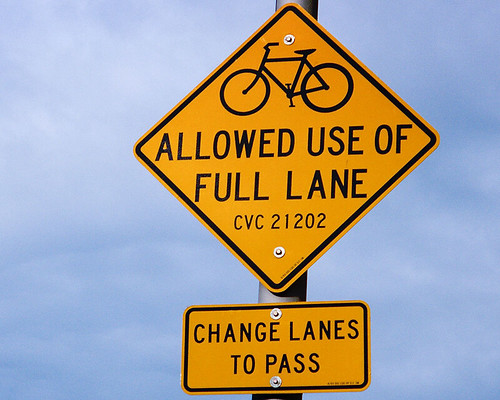Wednesday, May 7, 2008
We need a new tool...
We know that 'fear from the rear' is irrational and it drives much of the facilities advocacy. But today I'm not addressing the institutional problems of dealing with traffic engineers, bureaucrats, and planners. Instead, I'm looking at the reduction of irrational fear on an individual basis.
Most of us with long experience seldom fear riding in traffic, and when we meet someone wholly consumed by that irrational fear we may have difficulty understanding it. I know I do at times. Our first response is to say that the fear is unfounded or greatly exaggerated, but this does nothing to reduce it. We can offer facts and statistics, yet they're all ignored. That's the definition of 'irrational' - something that defies reason and logic.
Think of watching a horror movie in a theater, for example. Objectively, we know that it's nothing more than sound and flashing lights in a darkened room. Yet the fear it induces is real - at least until the house lights come up.
My industry used to offer Fear of Flying classes for potential customers. Again, we know that flying is a very safe means of transportation, but simply telling a fearful person that isn't sufficient. The company offered classes that gradually habituated these customers through a succession of experiences that eventually led to taking a flight. It worked on two levels, the rational and the emotional.
That emotional approach is one we should discuss. Our opposition has met with considerable success by using fear as a tool. Is there an equally powerful one we could use? (Of the seven deadly sins, I could only remember gluttony, sloth, and avarice, and they're not really suitable, though I'm well acquainted with the first two.) Demonstrating vehicular cycling techniques is a real eye-opener but it works best one-on-one. We need something with the emotional impact of 'fear from the rear' that will let us reach a broader audience. I suspect that if we can influence large groups of individual cyclists, the institutional problems offered by traffic engineers, bureaucrats, and planners will simply go away.
Subscribe to:
Post Comments (Atom)

No comments:
Post a Comment